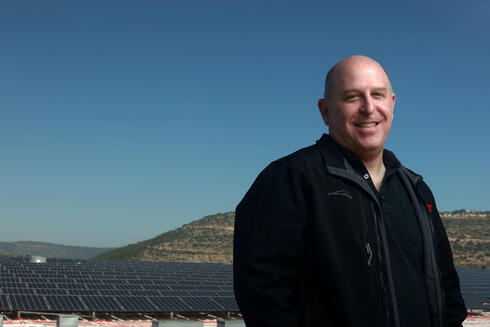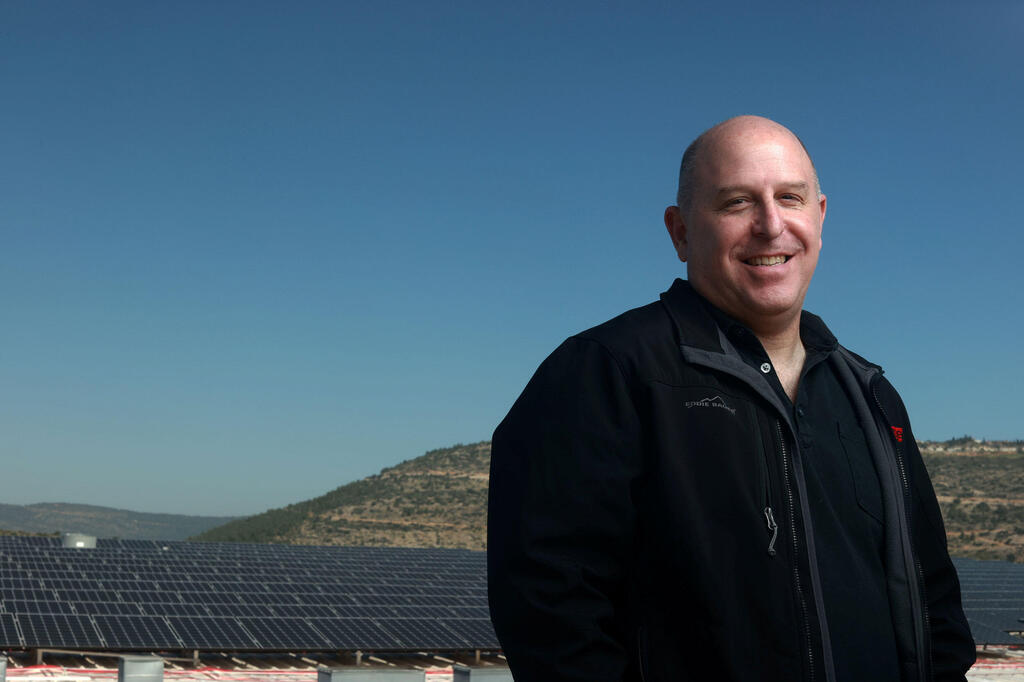
Shadow of uncertainty still lingering over SolarEdge despite huge cutbacks
Sources close to the company reveal that SolarEdge had formulated a work plan based on quarterly revenues ranging between $600-700 million. More layoffs could be coming should the company continue to fall short of its target
SolarEdge is still chasing the sunlight despite announcing the layoffs of approximately 900 employees, including 550 in Israel, on Sunday. The 16% reduction in its current 5,600-strong workforce will include mainly employees from the company's Herzliya headquarters, but will also encompass R&D personnel at its Zippori plant. These job cuts coincide with the closure of SolarEdge's electric and commercial vehicle operations and the shutdown of its Mexican plant.
SolarEdge's senior management views these cuts as a necessary measure. In 2023, the company had initially committed not to make any layoffs, but a recent decline in product demand over the last quarters prompted a change in strategy. Sources close to the company reveal that SolarEdge had formulated a work plan based on quarterly revenues ranging between $600-700 million. While the first two quarters of last year exceeded revenue expectations, the company fell well short of forecasts in the second half of 2023, raising concerns about future revenues falling below the baseline assumption. In such a scenario, the sources indicate that the company may be compelled to make additional cuts.
"The writing was on the wall and was realized a few months too late,” said Shahar Cohen, Founder and CEO of Lucid Capital. “The solar electricity market is reaching maturity, with a penetration rate between 5% and 6% in the U.S. These rates are causing challenges with electricity system loads, leading to excess electricity during the day and shortages at night. Solar electricity has shifted from being beneficial to the grid to becoming a burden on the grid."
Cohen criticizes SolarEdge's management for building high production capacity amid declining demand, describing it as a severe blow to profitability rates. Moreover, the political situation in Europe suggests a discontinuation of subsidies to the company, particularly from right-wing governments that oppose the method of providing grants for solar energy use. Cohen points to the Netherlands as an example of this policy change following a government transition.
Despite the challenges, Cohen expresses optimism about the company's recent moves and its future income. “The market will love this. Laying off 900 people will save the company around $100-150 million in salary a year. SolarEdge is a good company, but it took a wrong turn and is now taking a step back in order to adjust its expense structure to its future revenue.”
These layoffs mark the culmination of a series of negative events for SolarEdge, including a plummeting stock, analysts lowering target prices, departure from the prestigious S&P 500 index, and anticipated weak performance.
Since the beginning of 2024, Solaredge's stock has dropped by 24%, reaching a value of only $3.9 billion, a stark contrast to its peak market value of $20 billion in August 2022 when it held the position of the largest Israeli company by market value. In December, S&P announced SolarEdge's removal from the S&P 500 index, marking the end of a two-year tenure during which it became the first Israeli company to be part of the prestigious index. These setbacks are largely attributed to high interest rates, regulatory challenges, and accumulated issues with customers.
SolarEdge specializes in manufacturing systems for managing solar installations, selling them to both renewable energy companies undertaking large projects and private customers installing solar systems on their rooftops. Interest rates play a crucial role in the market, particularly because renewable energy companies typically establish projects with around 80% financing, and private customers often use credit to set up home systems. Rising interest rates significantly increase the burden on solar system builders.
From mid-2022 until now, the interest rate in the U.S. has surged dramatically from zero to 5.5%. Given that half of SolarEdge's solar activity is in the U.S., this has had a substantial impact. The demand for solar systems has sharply declined, affecting the need for optimization solutions and system management offered by SolarEdge.
Last month appeared to signal the end of the interest rate challenges, with the Federal Reserve deciding to maintain high interest rates, but Governor Jerome Powell hinting at the possibility of three interest rate cuts in 2024. Consequently, SolarEdge, managed by Zvi Lando, experienced a 32% jump in share price in one day, providing some relief for investors. Other companies in the sector, including the major competitor Enphase, also saw a positive impact.
In addition to interest rate challenges, new regulations in California in 2023 reduced the rates received by owners of private solar systems by up to 75%, impacting the demand for such systems. SolarEdge sells these installations, although they are not widespread among private customers due to their cost.
Also in Europe, a significant target market for SolarEdge, the company faces difficulties. The war between Russia and Ukraine in February 2022 led to a surge in traditional energy prices, driving a heightened demand for renewable energy. Many businesses stocked up on equipment for setting up solar installations, leading to a significant inventory build-up and subsequent decline in orders for SolarEdge.
Over the past year, SolarEdge has witnessed a decline in financial performance. Net profit, which stood at $139 million in the first quarter, dropped slightly to $119.5 million in the second quarter, but the company was in the red in the third quarter with a loss of almost $62 million. This is in stark contrast to the net profit of $16 million in the corresponding quarter in 2022. Third-quarter revenues of $725 million were also lower than the corresponding period's $837 million. Although SolarEdge met its own forecasts in the third quarter, it dramatically lowered them in October, resulting in a 12% share price decline on that day.
Analysts covering SolarEdge express mostly pessimistic views. Barclays Bank lowered the target price of the stock from $74 to only $50 this month, below the current stock price of $69.1. This downward trend started in October when Barclays reduced the price from $274 to $152. However, Bank of America provided a buy recommendation for the stock in August, despite the sharp declines, describing the situation as a "correct strategy, bad conditions."
SolarEdge was founded in 2006 by five former members of the Intelligence Corps' technology unit: Guy Sella, Lior Handelsman, Yoav Galin, Meir Adest and Amir Fishelov. The company went public in 2015 at a value of $704 million.















